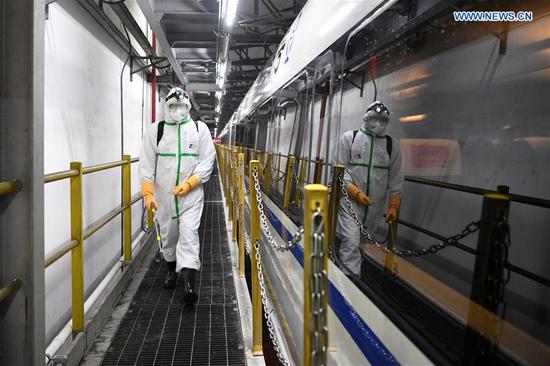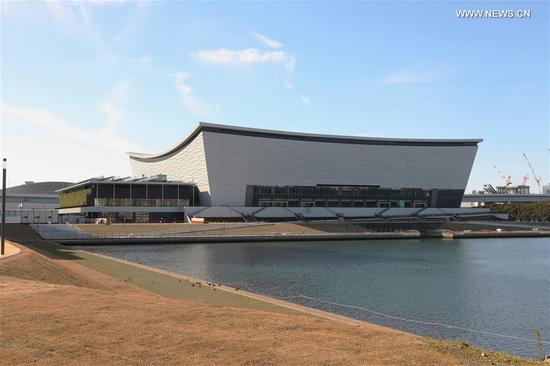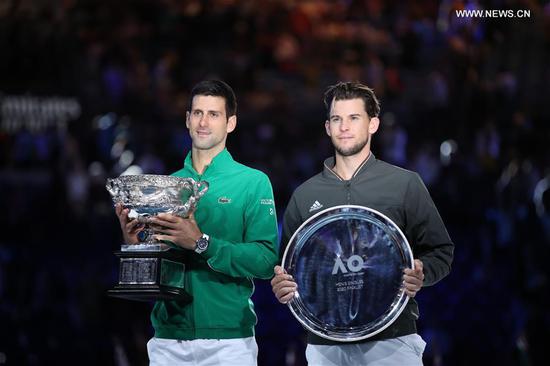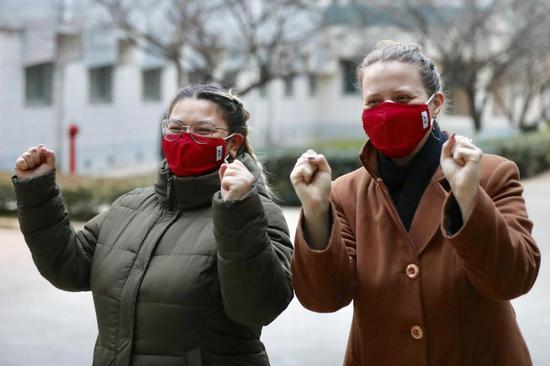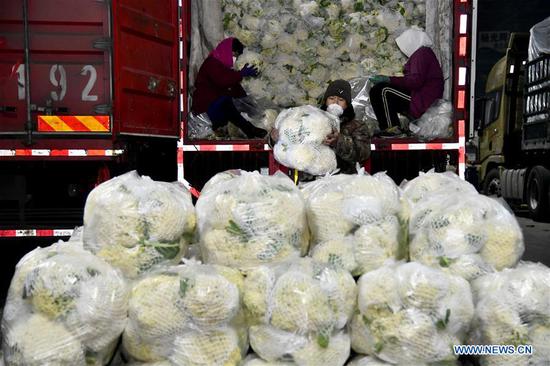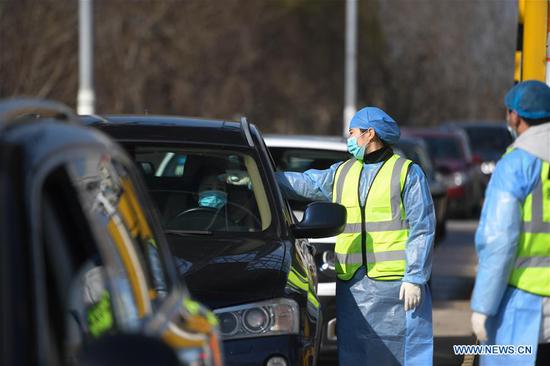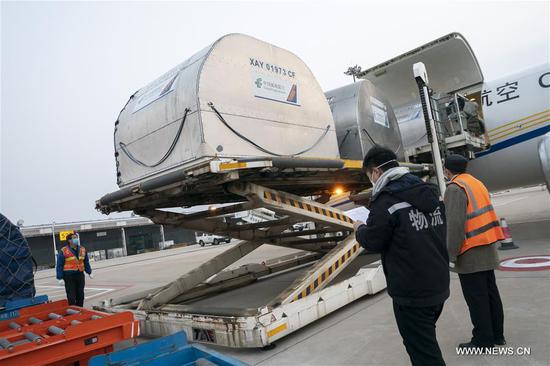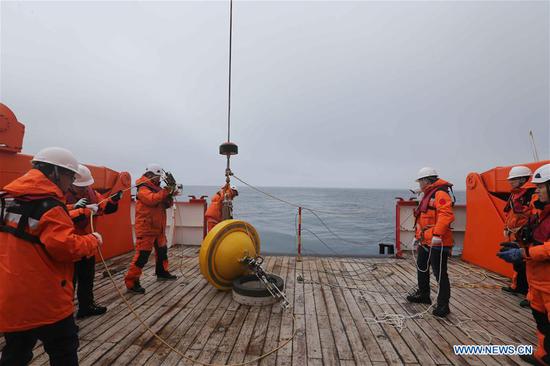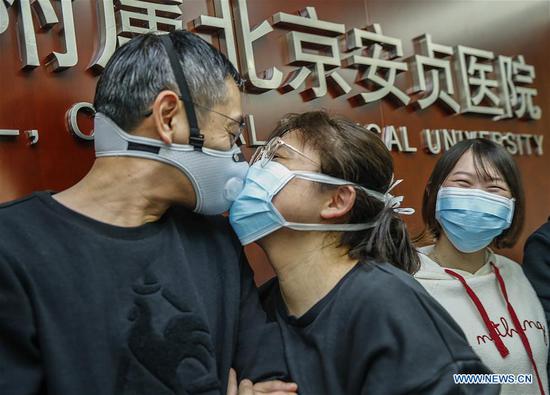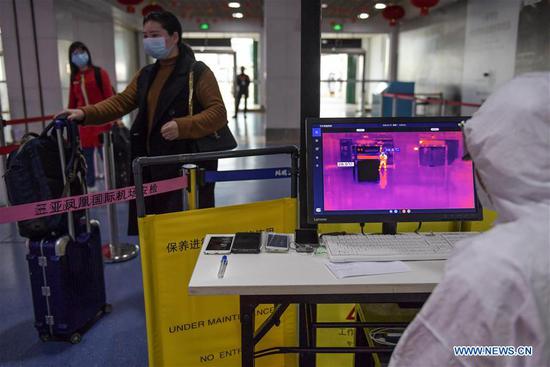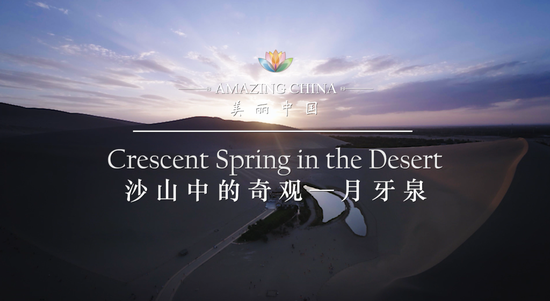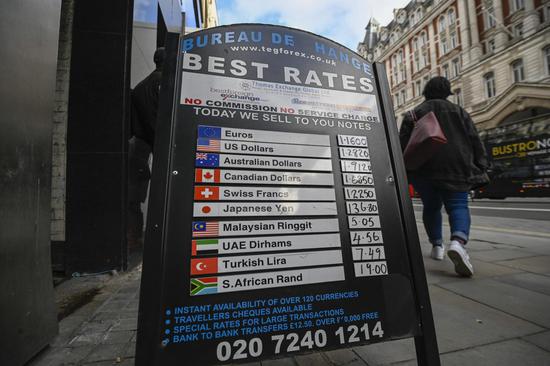
A pedestrian walks past a currency exchange in London, Britain, on Feb. 1, 2020.(Photo by Stephen Chung/Xinhua)
British Prime Minister Boris Johnson said Monday that Britain will seek a Canada-style trade agreement with the European Union (EU) as part of its future trade relationship with Brussels, rejecting the idea that Britain will have to accept EU rules in future trade arrangement.
Johnson outlined his vision for post-Brexit Britain in a keynote speech to business leaders in Greenwich, London, insisting that the country will be unshackled after 47 years tied to the EU.
"We have often been told that we must choose between full access to the EU market, along with accepting its rules and courts on the Norway model, or an ambitious free trade agreement, which opens up markets and avoids the full panoply of EU regulation, on the example of Canada," Johnson said.
"We want a free trade agreement, similar to Canada's but in the very unlikely event that we do not succeed, then our trade will have to be based on our existing Withdrawal Agreement with the EU," he said.
The prime minister said the choice for Britain is emphatically not a case of "deal or no deal", the question is whether Britain agrees a trading relationship with the EU comparable to Canada's -- or more like Australia's.
"In either case, I have no doubt that Britain will prosper mightily," he said.
Canada and the EU signed in 2016 the Comprehensive Economic and Trade Agreement after seven years of negotiation. It is regarded as the most ambitious trade agreement that the EU has ever concluded with non-EU countries. Under it, import tariffs on most goods have been eliminated, though customs and VAT checks still remain. The flow of services, such as banking between the two sides are much more restricted.
Australia and the EU launched negotiations for a free trade agreement in June 2018, aiming at removing barriers to trade in goods and services while creating opportunities for small and large companies.
Johnson said Britain should not be obliged to accept EU rules in key areas, because Britain is not going to insist that the EU follows all its rules.
"There is no need for a free trade agreement to involve accepting EU rules on competition policy, subsidies, social protection, the environment or anything similar, any more than the EU should be obliged to accept UK rules," Johnson said.
Britain and the EU are expected to start trade talks in March. Britain will continue to follow all EU rules and regulations during a transition period after Brexit, due to end on December 31.
In a speech in Brussels, the EU's chief negotiator Michel Barnier said Monday that the bloc was ready to offer a "highly ambitious trade deal as the central pillar of this partnership", but Britain needs to agree to "specific and effective guarantees to ensure a level playing field" to ensure competition "is and remains open and fair".










